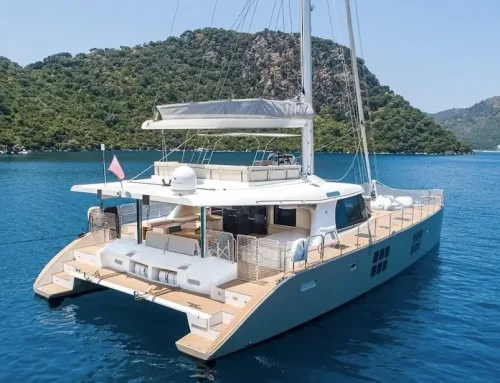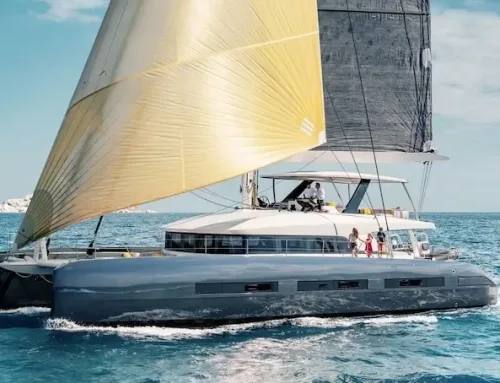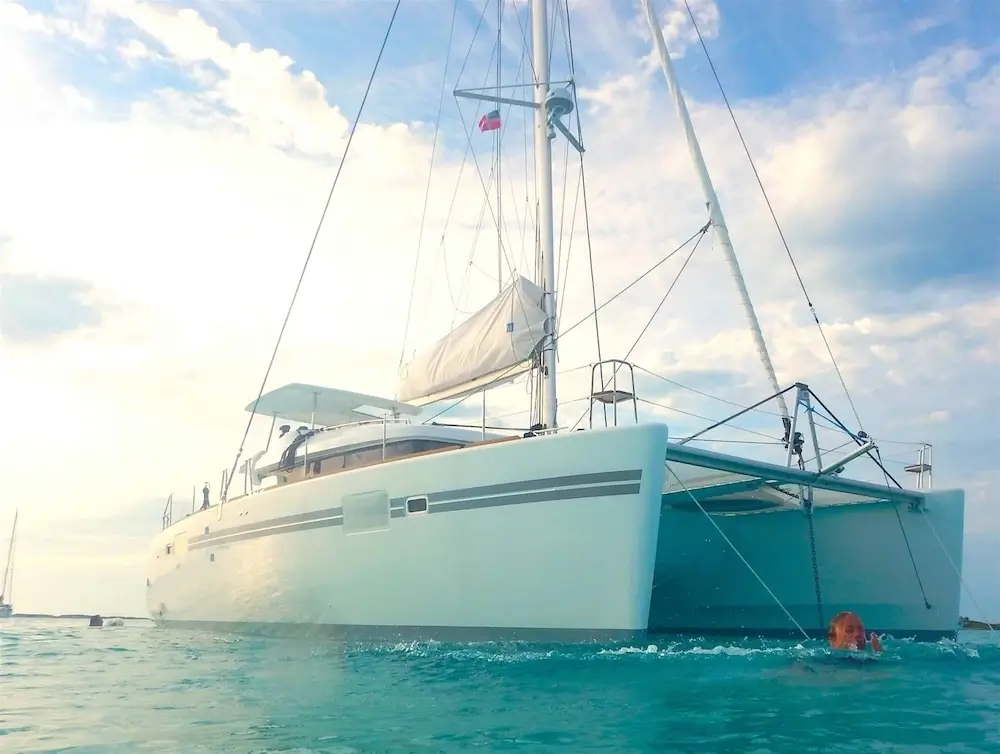
Unveiling the Downsides of Catamarans: A Balanced Perspective
When it comes to chartering a boat for a memorable sailing experience in Greece, catamarans are often a popular choice. Known for their stability, spaciousness, and comfort, they seem like the ideal option for many. However, like any vessel, catamarans have their downsides too. In this comprehensive guide, we delve into some of these lesser-known aspects, helping you make an informed decision for your next sailing adventure.
Understanding Catamarans: A Brief Overview
Before exploring the downsides, it’s essential to understand what catamarans are. Catamarans are multi-hulled vessels offering greater stability than traditional single-hulled boats. This stability often translates to less seasickness and more space, making them a preferred choice for families and groups.
1. The Cost Factor
Higher Charter Costs
One of the most significant downsides of catamarans is their cost. Generally, renting a catamaran in Greece can be more expensive than chartering a monohull yacht. The larger size and additional amenities often drive up the price.
Maintenance and Repair Costs
Owning a catamaran also comes with higher maintenance and repair costs compared to traditional yachts. Their complex designs and twin-hulls mean more parts and labor.
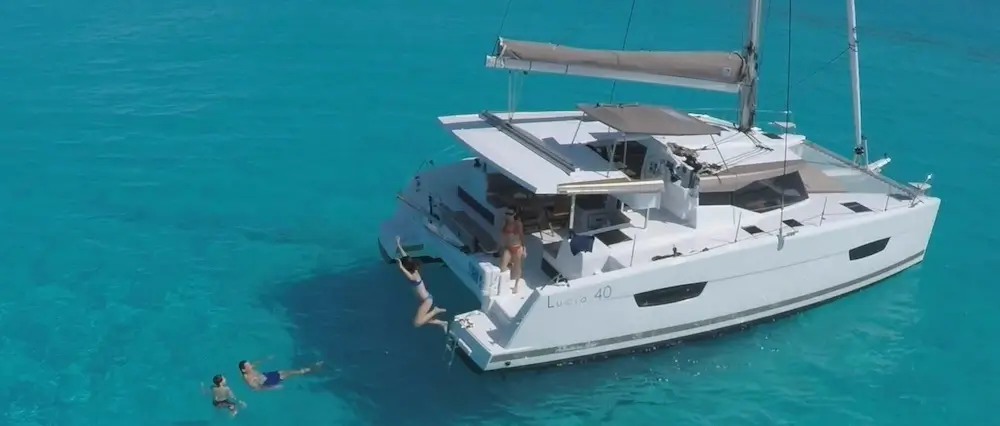
Downsides Of Catamarans 1
2. Size and Maneuverability
Challenges in Handling
Despite their stability, catamarans can be challenging to handle, especially for less experienced sailors. Their wide beam creates a larger turning radius, making them less maneuverable in tight spaces.
Docking Difficulties
The size of catamarans often poses difficulties in docking. Their wide beams may not fit in standard marina slips, limiting mooring options and potentially leading to higher mooring fees.
3. Performance Limitations
Upwind Sailing Challenges
While catamarans perform exceptionally well downwind, they can struggle in upwind conditions. Their design can limit their ability to sail close to the wind, potentially slowing down your journey.
Light Wind Performance
In light wind conditions, catamarans may not perform as efficiently as monohulls. Their heavier weight can make them slower to accelerate and require more wind to maintain speed.
4. Sea Handling and Comfort
Motion in Rough Seas
While catamarans are stable in calm waters, their performance in rough seas can be a downside. The twin-hull design can lead to a jerky motion in choppy conditions, which might be uncomfortable for some sailors.
Sensitivity to Weight Distribution
Catamarans are sensitive to weight distribution. Overloading or uneven distribution of weight can affect their performance and stability, making careful packing and provisioning essential.
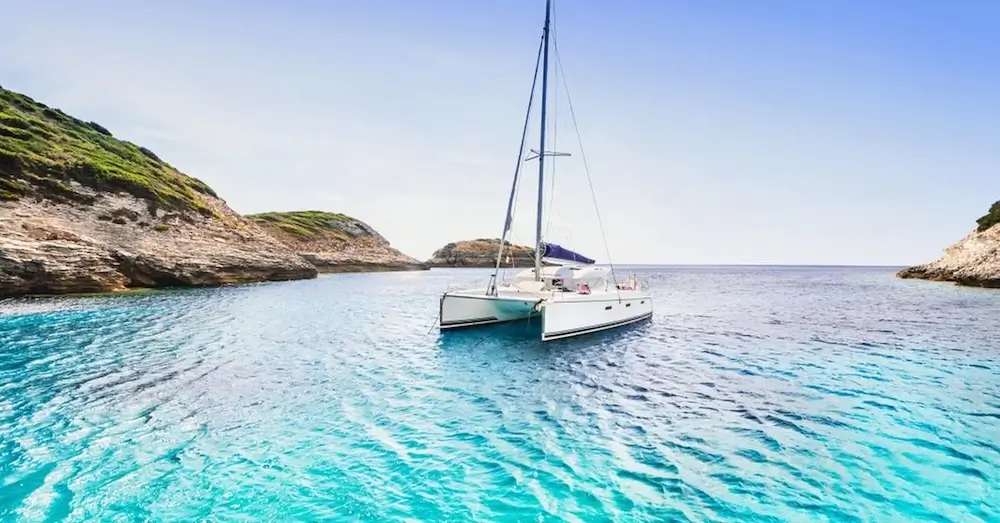
Downsides Of Catamarans 2
5. The Learning Curve
Unique Sailing Skills Required
Sailing a catamaran requires a different skill set compared to monohulls. For those accustomed to traditional sailing, there is a learning curve involved in mastering a catamaran, especially regarding tacking and gybing.
Need for Specialized Training
Given their unique handling characteristics, it may be necessary to undergo specialized training or gain experience before confidently chartering a catamaran, as emphasized in the catamaran charter Greece FAQ.
6. Space and Privacy Considerations
Larger Size, Lesser Privacy
While the spaciousness of a catamaran is a plus, it can sometimes mean reduced privacy. The proximity of cabins and communal areas might not suit those who prefer more secluded spaces.
Docking and Anchoring in Crowded Areas
The larger footprint of catamarans can make it challenging to find anchoring space in popular or crowded areas. This could limit your anchorage options during peak sailing seasons.
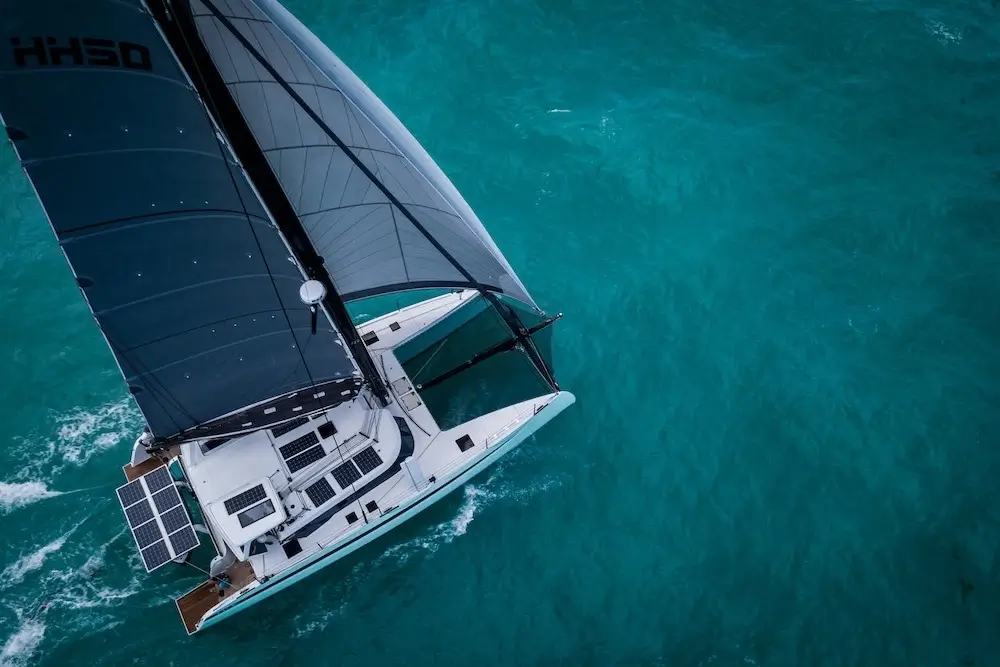
Downsides Of Catamarans 3
7. Environmental and Practical Concerns
Environmental Footprint
The larger size and engine power of catamarans mean they can have a larger environmental footprint compared to smaller yachts, something to consider for eco-conscious sailors.
Limitations in Shallow Waters
Despite their shallow draft, certain catamaran models might still face limitations in extremely shallow waters. This can restrict access to some coves and bays, especially relevant in the intricate Greek waters.
8. The Cost of Luxury and Amenities
Higher Expense for Extras
Catamarans often come equipped with additional amenities like larger cabins, en-suite bathrooms, and expansive deck areas. While these features enhance comfort, they also add to the charter cost, making it a significant consideration for budget-conscious sailors.
Increased Fuel Consumption
The dual engines in most catamarans mean they typically consume more fuel than monohulls, especially when relying on engines instead of sails. This can lead to higher operational costs during your charter.
9. Insurance and Availability Issues
Higher Insurance Premiums
Owing to their value and repair costs, catamarans often attract higher insurance premiums. This factor can add to the overall cost of chartering or owning a catamaran.
Limited Availability in Some Regions
While popular in places like Greece, catamarans might not be as readily available in every sailing destination. This limited availability can be a downside for those looking to experience different sailing locations, as noted in Greece boat charter options.
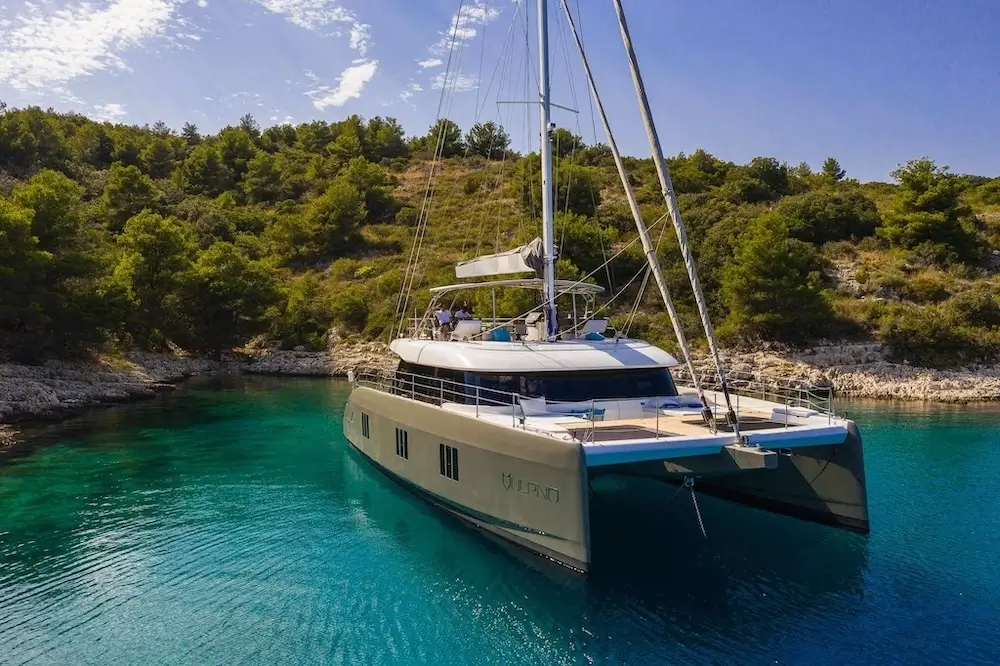
Downsides Of Catamarans 4
10. Resale Value and Market Limitations
Depreciation and Resale
Catamarans can depreciate faster than monohulls, affecting their resale value. Additionally, the market for second-hand catamarans is smaller, which can be a downside if you plan to sell your vessel in the future.
Specific Market Preferences
The catamaran market is more niche compared to monohulls. This can limit your potential buyers or renters if you’re looking to charter or sell your catamaran.
Conclusion: Weighing the Pros and Cons
While catamarans offer numerous advantages like stability, space, and comfort, it’s important to consider these downsides before making your decision. Factors like cost, handling, performance, and environmental impact play a crucial role in determining whether a catamaran is the right choice for your sailing needs, especially in destinations like Greece.
Whether you choose to rent a boat in Greece or invest in a catamaran, weighing these factors against your personal preferences and sailing experience will help ensure a fulfilling and enjoyable sailing adventure.


